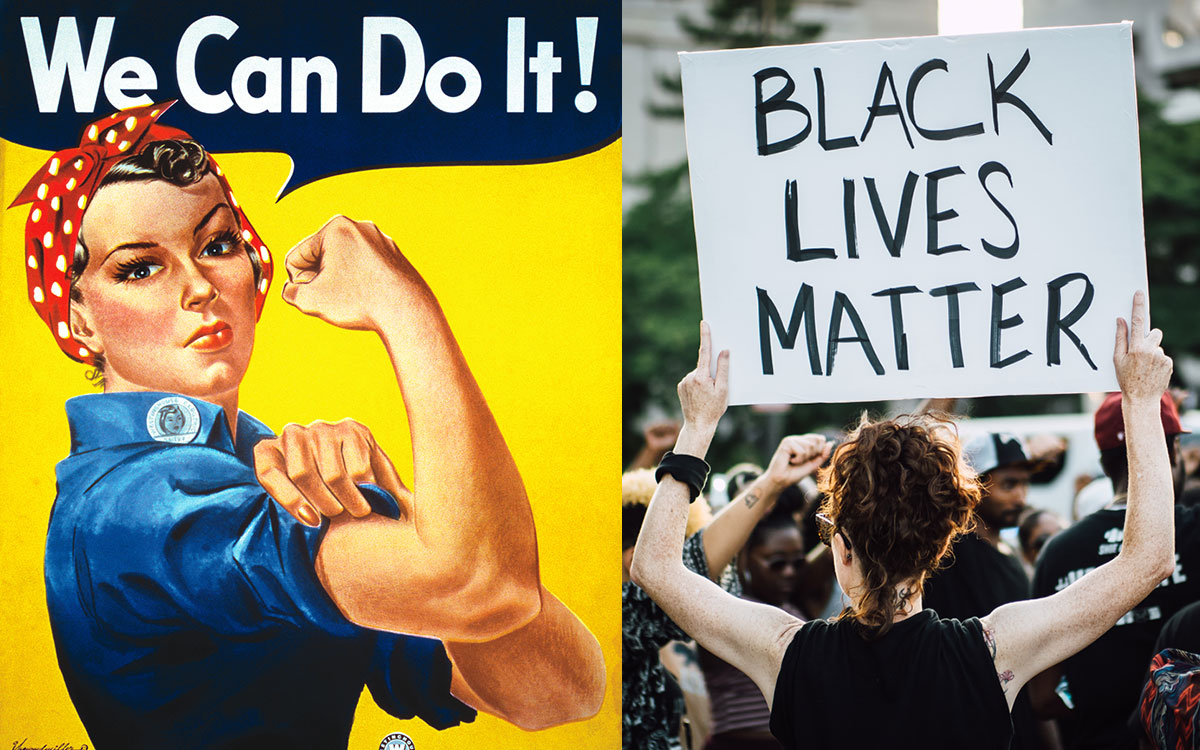Slogans are powerful. They accompany nearly every part of our daily lives and we ingest them unconsciously. We often think of them as being attached to products or services which are being sold. For example, most people from the U.S. need to simply hear the words “Just Do It” or “Have It Your Way”, to tell you the phrases belong to Nike and Burger King.

Nike and Burger King Logos
Some slogans aren’t meant to sell products though, sometimes they’re meant to deliver ideas to us in memorable ways. There are, and have always been, times when people need to capture the essence of a political campaign, war effort, or social movement in a few words.
At the very least, these movements need public approval to permit the people in power to act, and more often they need public support in the form of votes or financial aid. Thus, sanctioned and revolutionary leaders alike go to great lengths to distill the heart of their efforts (or what they want you to believe is the heart of their effort) into a few memorable words.
Imagine that any political or social movement is a large jug of water with no handle. A person may find it useful but still have difficulty carrying it with them, consuming it, or sharing it with others. A convincing slogan is like a handle. The moment you give a movement a slogan, you give it mobility and make it accessible.
4 Types of Slogans
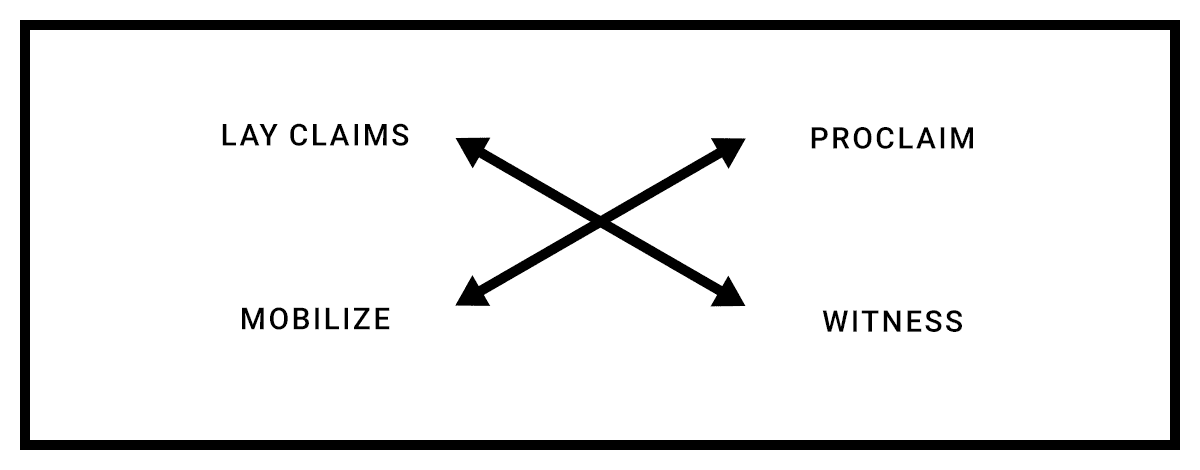
While there may be several ways to characterize how slogans function in society, a simple framework of 4 possible uses has been created which is particularly helpful. This framework proposes that all political and wartime slogans attempt to do one of the four following things:
- Lay Claims
- Proclaim
- Mobilize
- Witness
Lays Claims
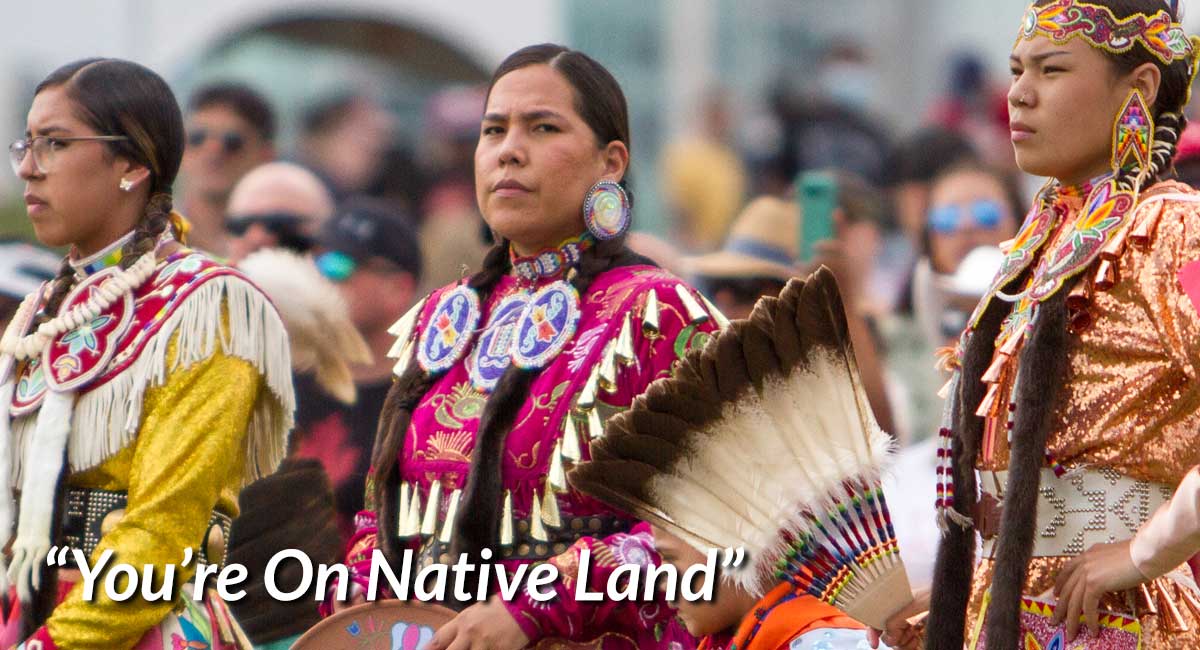
Dwayne Reilander, CC BY-SA 4.0 via Wikimedia Commons
When a slogan lays claim, it asserts something as true and allows the reader or listener to draw conclusions on their own. A modern example of this is the simple statement “You’re On Native Land” which draws attention to the fact that countries such as the U.S.A., Australia and Brazil were founded on land that was previously inhabited by native people. This might motivate people to donate to native people groups, or simply serve to make people aware of the real history that allows them to live where they do.
Proclaim
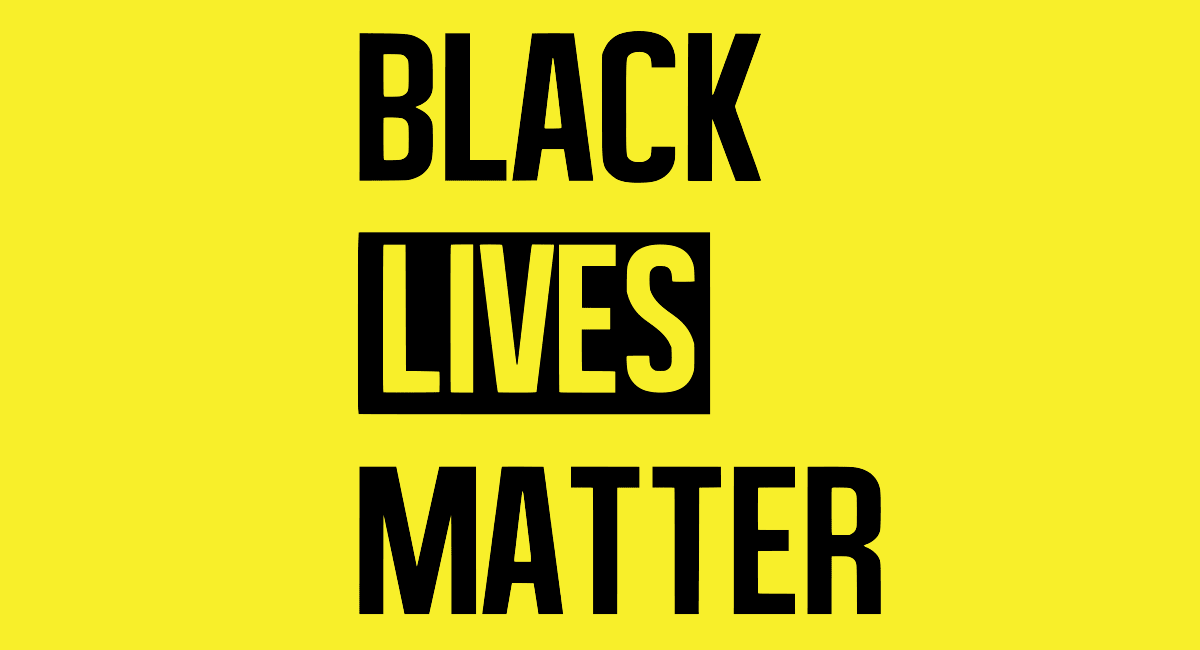
Slogans which proclaim, state the truth like slogans that lay claim, but may not make a claim in and of themselves. An example of this is “Black Lives Matter”, which is stating a fact that cannot inherently be contested.
Mobilize
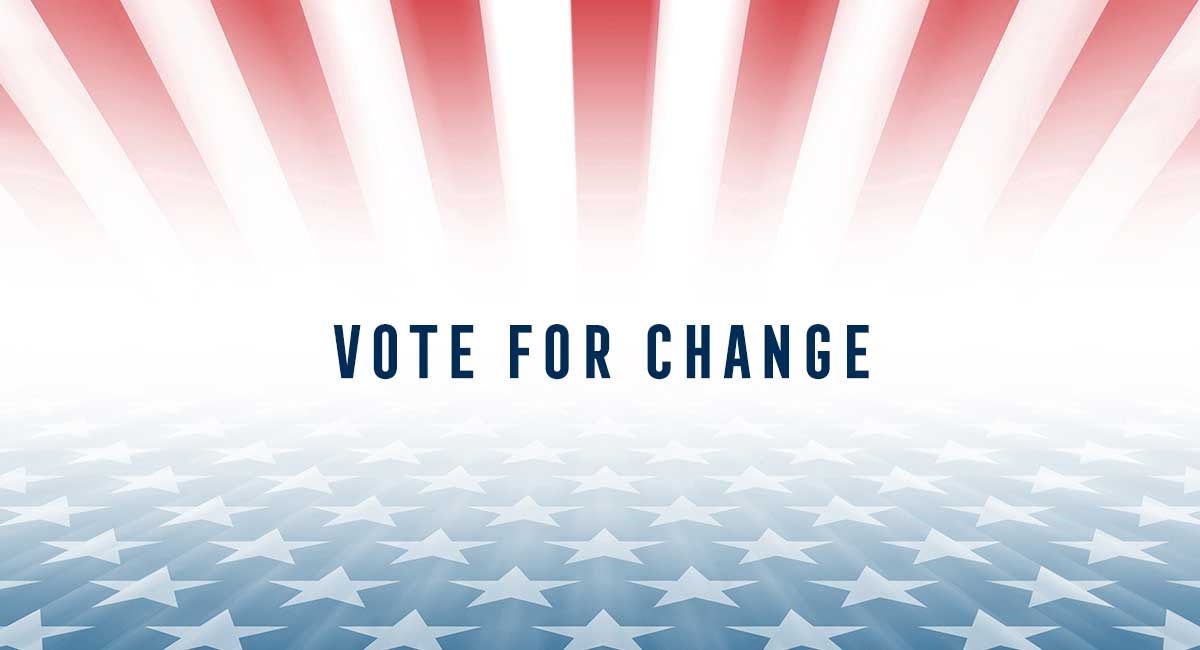
Social movements sometimes construct slogans with the goal of mobilizing people to act. The 2004 politically motivated “Vote For Change” tour is an unsubtle example of a mobilizing slogan. The tour and slogan was supposedly nonpartisan but unofficially aimed at encouraging voters to vote against George Bush in the presidential election that year. Another example was “Stop The Steal”, which encouraged people to investigate whether or not the results of the 2020 presidential campaign were authentic.
Witness
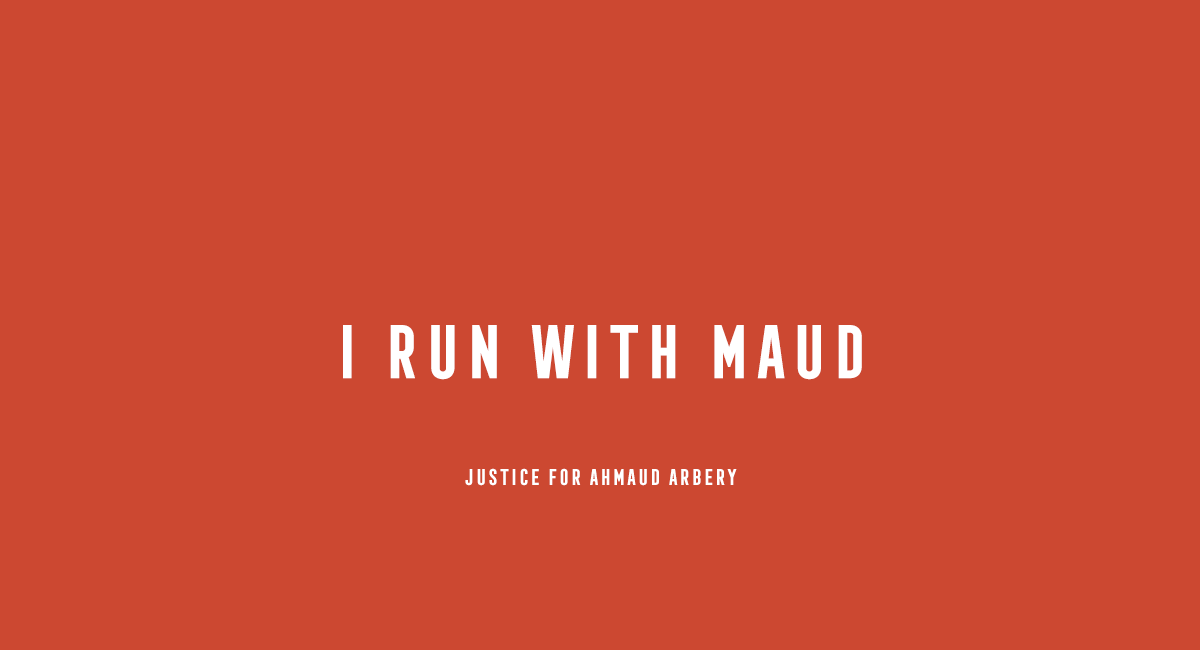
“I Run With Maud” is an example of a slogan that bears witness. This slogan was born out of the shooting of Ahmaud Arbery on February 23, 2020 while he was jogging for the purpose of exercise. This slogan was and is meant to bear witness specifically to the event of Ahmaud’s death.
Slogans, of course, blur the lines between these 4 functions and sometimes one slogan simultaneously accomplishes two or three objectives at once. Either way, this framework will be helpful as we go through examples of political slogans.
Early Examples of Political and Wartime Slogans
“Veni, Vidi, Vici”
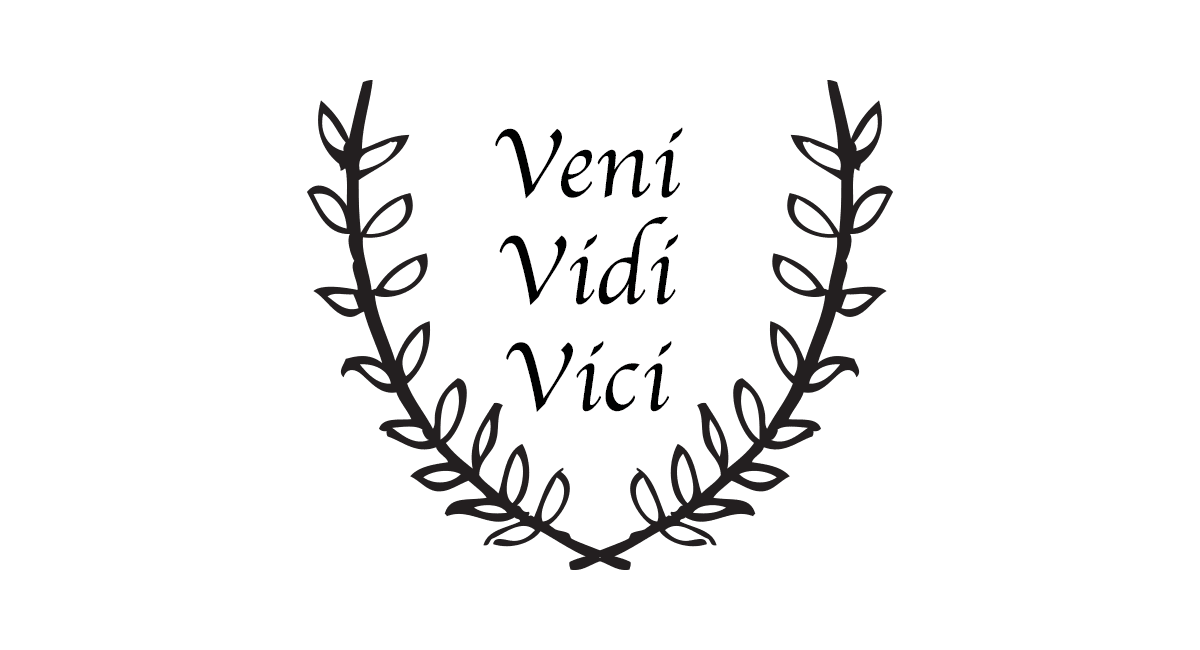
Veni, Vidi, Vici
Caesar displayed the words “Veni, Vidi, Vici” on the Titulus. This was a large placard to be read upon Caesar’s return as he paraded his conquests in the streets of Rome following his military victories in Gaul, Egypt, Pontus, Africa and Spain. Caesar also wrote these words in a letter to the Senate after his victory in Pontus. In both cases his goal was to communicate to the Senate and the populace that he had not only won, but had won quickly.
Plutarch, one of three ancient sources reporting the account, praised the Latin wording “Veni, Vidi, Vici” for its compelling composition and conciseness. In Latin specifically, as opposed to the Greek of the time, the first person singular was implied in the conjugation of the words, which is why there is no word comparable to “I”, in English. As a result, “Veni, Vidi, Vici” communicated Caesar’s message in the same style that a modern day wartime slogan would attempt to do so, in as few words as possible.
Despite this taking place around B.C.E. 47, Caesar’s aim in using the slogan was the same as any modern leader’s or movement’s goal. That being, to instill confidence in his cause among the people needed to support him. In this case, Caesar was proving that he was a capable and powerful leader to be obeyed and revered. This was especially helpful at this time because violent or coercive attempts to steal the throne were not uncommon. Securing the favor of the masses was important then, and continues to be now.
The Walls of Pompeii
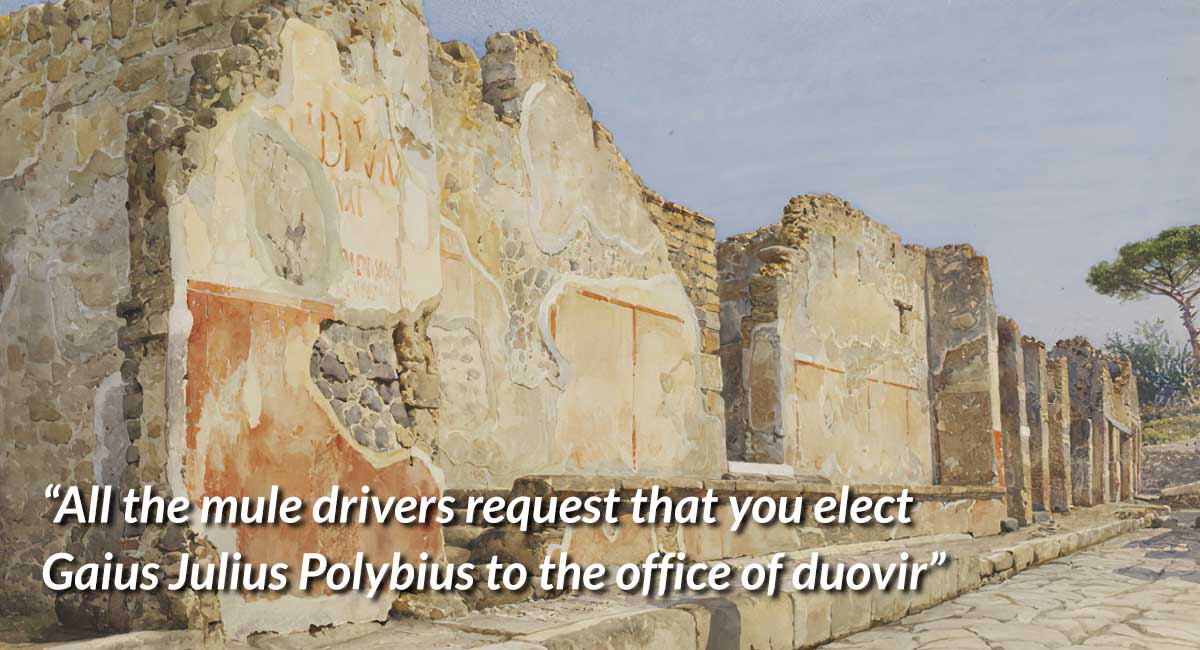
Exterior wall of a domus in Pompeii watercolor by Luigi Bazzani – Public domain, via Wikimedia Commons
Modern scholarship owes much to the eruption of Mt. Vesuvius in 79 C.E. The eruption killed Pompeii’s citizens and preserved the city in a unique way that offers us a window into the past.
Among the things preserved by the blast are more than 1,000 unique instances of political slogans written on the walls of the city. Like modern day political slogans, these were well thought out. Professional artisans were hired to inscribe or paint these messages into the walls of the wealthy people’s homes, or walkways with frequent foot traffic.
While Pompeii’s political persuasions aren’t as brief as the modern expressions we will cover later, they still undoubtedly have a similar air about them. Some of Pompeii’s ancient political discourse went like this:
- “If honest living is thought to be any recommendation, then Lucretius Fronto is worthy of being elected.”
- “Elect Gaius Julius Polybius to the office of aedile. He provides good bread.”
Sometimes, specific groups of people were targeted in order to garner votes. This is exactly what modern politicians do when targeting groups with specific leanings. Albeit similar, these ancient examples are a bit more forthright:
- “The chicken vendors request that you elect Epidius and Suettius as duovirs”
- “All the mule drivers request that you elect Gaius Julius Polybius to the office of duovir.”
Perhaps direct allusions to provisions of bread, chicken vendors and mule drivers seems silly now. But maybe in 2000 years a political ad promising to lower gasoline prices will seem equally irrelevant and amusing.
Well Known Slogans From The U.S.
“Give me liberty, or give me death!”
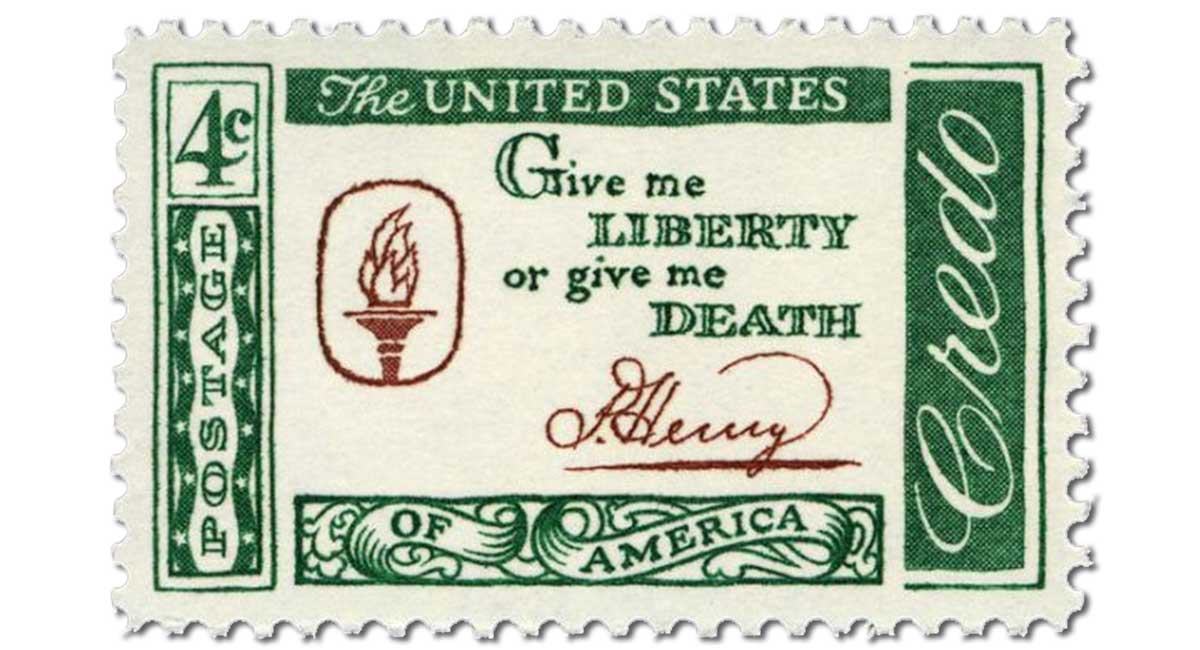
Patrick Henry supposedly uttered these famous words on March 23, 1775, during the Second Virginia Convention. There is debate about whether or not the slogan is actually attributable to him because it wasn’t written down until 40 years later. The speech was posthumously published by the biographer William Wirt who reconstructed it from the memory of witnesses. One thing is certain however, Henry’s speech was so moving that it swayed the opinions of those present at the convention, making them willing to send Virginia’s troops into the revolutionary war.
Whether or not Henry actually said those words is debatable, but it almost doesn’t matter. The majority of the people in the U.S. have heard the slogan even if they don’t know where it originated. Like many political slogans, this one outlived the context in which it was created and has gone on to be repurposed.
In fact, the famous poet and rapper Tupac Shakur, penned an essay in 1992 in which he said “I understood what Patrick Henry meant when he uttered these words. I think every black male and minority youth in general, can relate greatly to that.” Surely, Tupac is not the only person to reuse the famous phrase, but he is one of the most interesting.
“We Can Do It!”
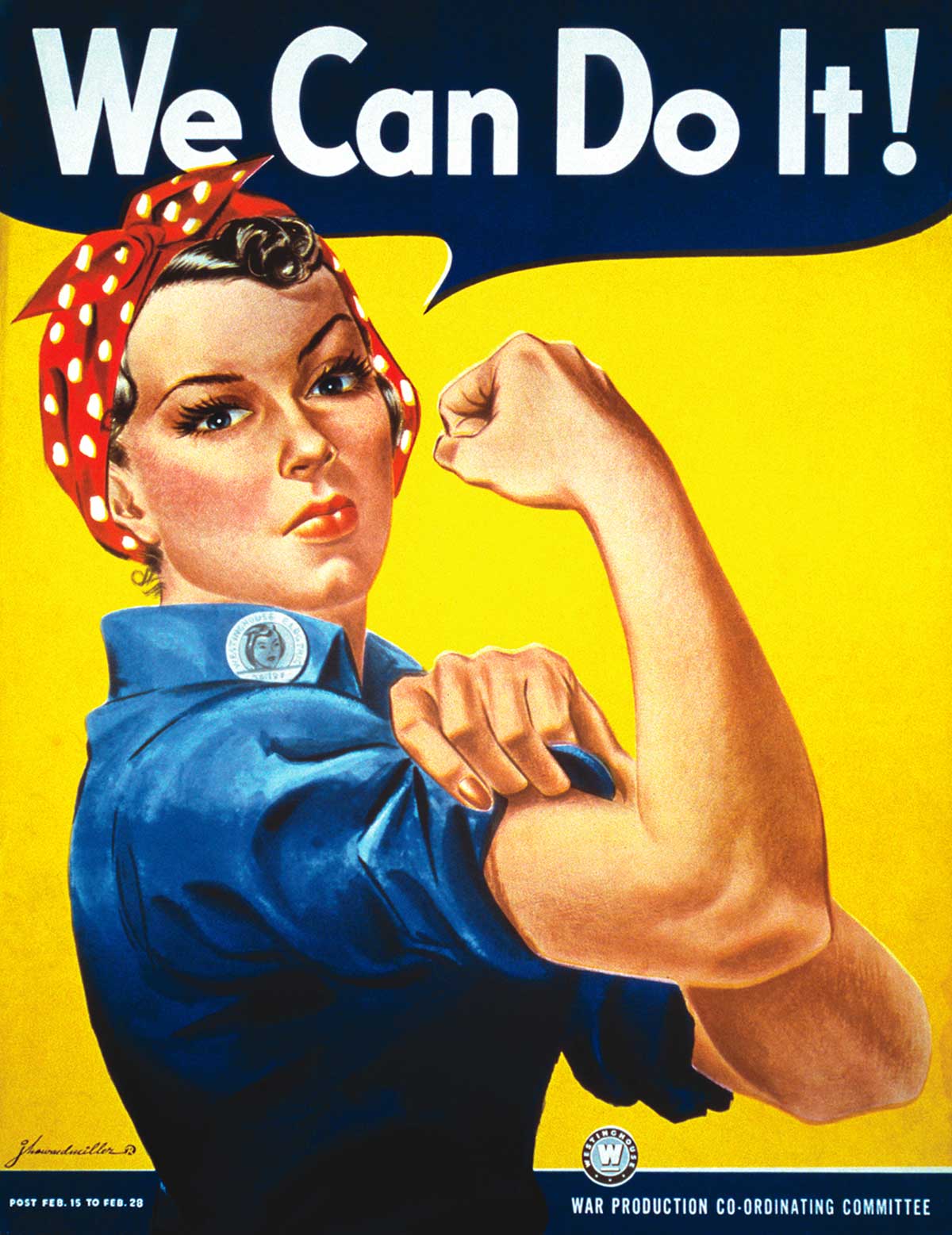
“Rosie The Riveter” appears on a famous poster produced during WWII. She is pictured flexing her bicep with a red polka-dotted bandanna atop her head, blending typical masculine and feminine characteristics into one persona. Above her head, a speech box reads “We Can Do It!”.
The poster, along with the slogan, was created by the artist Howard Miller for Westinghouse Electric. The purpose of the poster and slogan was to encourage workers at the electric company to continue working. People often believe the poster was meant to encourage women to take jobs in production to fill the absence left by men deployed at war. This is not true and the poster was only seen by employees in the factory.
However, the poster was rediscovered in the 1980’s and widely used as a symbol of feminism at that time. In fact, the name “Rosie The Riveter” wasn’t even assigned to the woman in the photo until the 1980’s! Despite the origin of the poster and its intended original use, it is now understood to be a symbol of the strength and fortitude among people in various movements who wish to represent females as strong and capable.
Non-English Political Slogans
“El pueblo unido jamás será vencido”
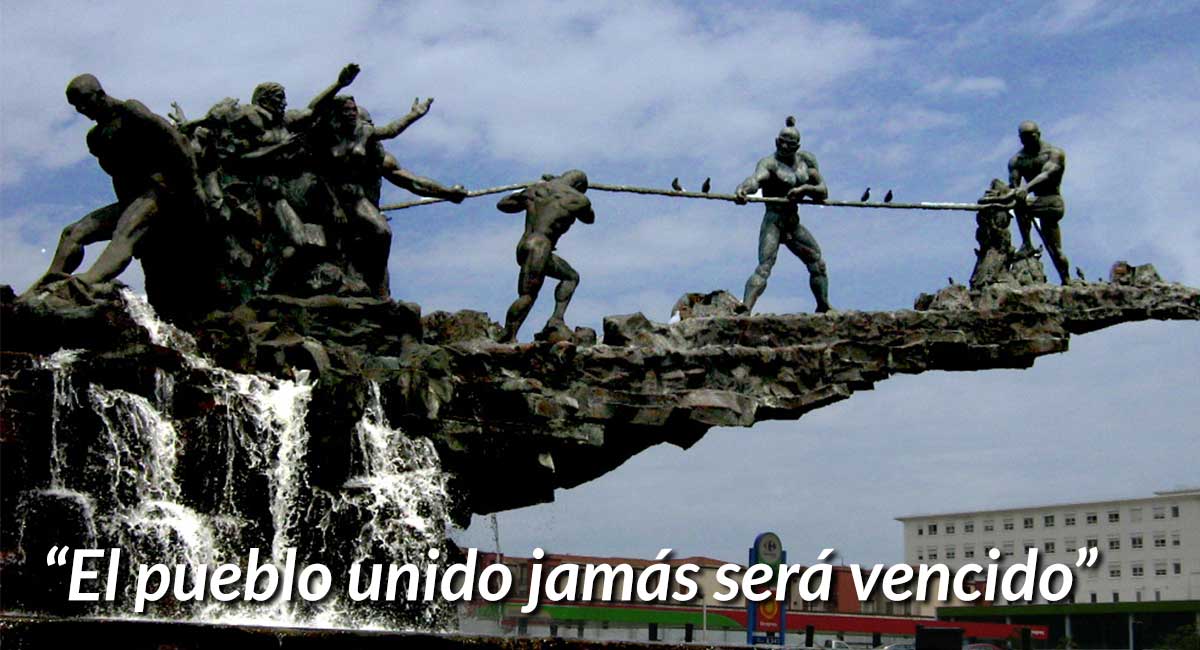
Juanadearcolaloca, CC BY-SA 4.0 via Wikimedia Commons
“El pueblo unido jamás será vencido” has been a popular political slogan employed in multiple movements throughout Latin America. In English, the phrase translates to “The people united will never be defeated.”
The origins of the phrase are roughly drawn to a speech given by the Colombian politician and activist Jorge Eliécer Gaitán who had dedicated his life to the hope of seeing a more just Colombia. Gaitán was a gifted orator and the speech from which the slogan was taken would’ve been delivered in the 1940’s.
The slogan became popular again in Chile during the 1970’s when the democratically elected Salvador Allende was appointed president. In 1973 the chant was transformed into a song and recorded by the band Quilapayún. Remarkably, the first audio recording of the song was made among thousands of people at a concert held in Chile. The performance was also filmed. As you listen to the audio, you can hear that it begins as the already well-known chant. At around 15 seconds into the audio recording, the chant transitions into the song that would later become famous in its own right.
The general relatability of the lyrics and sentiment of the song has resulted in the song being repurposed for multiple occasions across the globe. Versions of the slogan and song have been recreated in the Philippines, France, Ukraine and Greece making it one of the most popular political slogans in the world.
HET BOйHE!
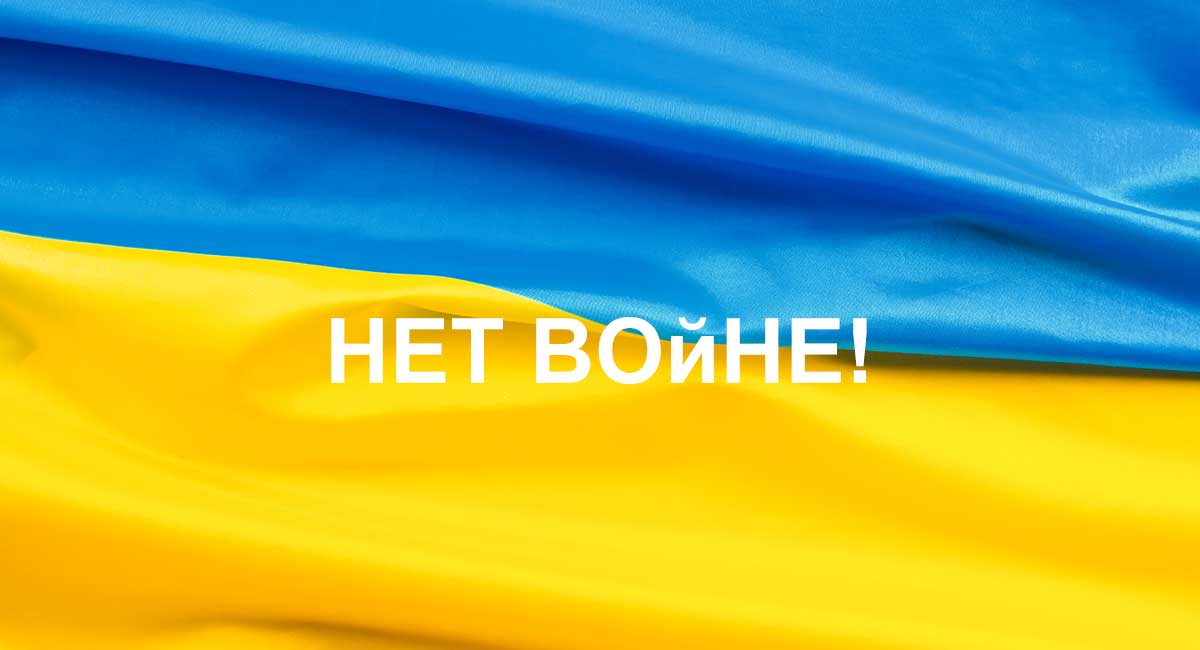
The Russian words “HET BOйHE!” translate to “NO WAR!” in English. These words have been written on protest signs, transformed into a hashtag, and animated by artists. The purpose of the message is for Russians to make it known to their Ukrainian neighbors and the rest of the world that they do not support war between Russia and Ukraine.
The relationship between Russia and Ukraine has been tense for decades. On February 24, 2022, Russian forces deployed airstrikes and ground invasions in Ukraine. Many Russian citizens do not feel politically aligned with Putin’s decision to invade Ukraine.
One of the most interesting aspects of this war in particular is that most people have access to cellphones, computers and the internet. Social networking has made it easier than ever before in history for Russia’s citizens to express solidarity with Ukraine by declaring “HET BOйHE!” Some poignant examples include a compilation of anti-war animations created by Russian artists, and Russians around the world protesting abroad.
Living Slogans
“Black Lives Matter”
It is impossible to truly convey the importance of a message as simple and moving as the “Black Lives Matter (BLM)” movement. The organization and its accompanying slogan, reached a level of undeniable fame on the world stage in 2020 when George Floyd was killed in police custody on May 25th. This sparked national outrage in the U.S. which resulted in a string of protests.
The message is simple. It makes an assertion. It does not explicitly argue against another viewpoint. The words “Black Lives Matter”, simply assert that Black people’s lives are important. The universal relatability of the words “Black Lives Matter” and the sentiment they carry, has led to international use of the slogan.
Despite the fact that the Black Lives Matter movement became well known in 2020, it was originally founded in 2013 by Alicia Garza, Patrisse Cullors, and Ayọ Tometi.
“Make America Great Again”
Like many of the examples preceding this one, the slogan “Make America Great Again”, has surprising roots. The first recorded use of the words in a U.S. political context was in 1940. The Senator of Wisconsin, Alexander Wiley, used the words in a speech in anticipation of the upcoming 1940 presidential elections.
The words were subsequently used by Ronald Reagan and Bill Clinton in their respective presidential campaigns.
Donald Trump’s first recorded use of the phrase was in 2011. In an interview at that time, Trump said “I must leave all of my options open because, above all else, we must make America great again.” This use of the slogan transports the imagination to a romanticized ideal of the U.S. from the past.
Despite the fact that Donald Trump did not invent the slogan, he has officially trademarked it. This makes it possible for Donald Trump to sell hats which read “Make America Great Again”. Whether the phrase had been used before or not, it will almost assuredly be associated with Donald Trump henceforth. What is unique for Trump is the use of the acronym “MAGA”.
It is worth noting that the use of the term “America” to refer to a country is colloquial and does not acknowledge the multiplicity of other nations located on the American continents. This fact is however unimportant as far as it concerns political campaigns in the U.S.
What Makes A Slogan Work?
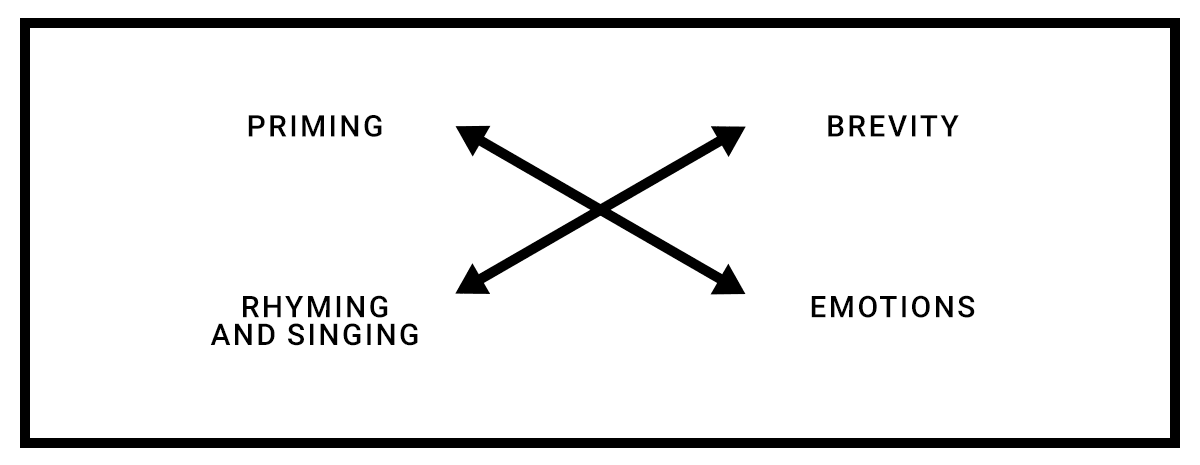
There are several factors which determine if a slogan will succeed. Working with the human brain is the best way to ensure that a slogan functions in a desirable way. This can be achieved in a few different ways.
Priming
In psychological terms, “priming” means influencing people’s subconscious reaction to a stimulus. So, the goal of a good slogan is to emotionally prepare a person to favorably accept the product the slogan represents. In the case of political or wartime slogans, the “product” is the movement. Compelling slogans subconsciously cause people to believe in a political candidate, revolution, social movement or war effort.
Brevity
Studies have shown that slogans between 3-6 words tend to be the best length because they are easiest to remember. This is a principle Caesar understood long before a study was ever conducted.
Rhyming and Singing
This probably isn’t surprising, but slogans which use rhythm and melody tend to be more memorable. The rhythmic, melodic, nature of the slogan “El pueblo unido jamás será vencido”, explains why it is not only memorable, but repeatedly repurposed internationally.
Emotions
Finally, the best slogans appeal to human emotion by making them feel something. “We Can Do It!”, generates feelings of empowerment and “Make America Great Again”, appeals to a person’s innate desire to love their homeland. The most effective slogans tap into our emotions, which tend to overrule our logical minds. In the end, most of what we know about slogans seems to be fairly obvious. A persuasive slogan condenses the heart of a message to make it more digestible for people. Slogans allow us to grasp a concept, to recall it, and to communicate it to others.

